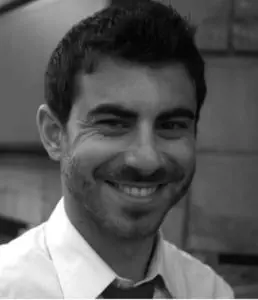Next Thursday, on Human Rights Day 2015, communities across the world will launch a year-long international campaign celebrating the 50th anniversary of the International Covenant on Economic, Social and Cultural Rights.
This international treaty is so important to poverty alleviation in Canada; by ratifying it in 1976, we agreed that all persons in Canada have a right to an adequate standard of living. To celebrate this Human Rights Day, CWP is asking the question #WhyRights – why is it so important that we use human rights to understand poverty in Canada? In exploring this message, we’ve created a blog series entitled #WhyRights. Today, CWP’s law student, Brad Yaeger, kicks off the series with his thoughts on #WhyRights.
#WhyRights in the Pursuit to End Poverty? Because they work
By Brad Yaeger (CWP Pro Bono Students Canada Intern 2015-2016)
“Idealism increases in direct proportion to one’s distance from the problem.” – John Galsworthy
I’m tired of being called an idealist. This is the usual reaction I get when I tell people that I want to be a human rights lawyer. There goes another idealistic law student.
But I don’t think there’s anything idealistic about human rights. Human rights—like all law—are born out of the lived suffering of real people: the Declaration of the Rights of Man and of the Citizen was written in the blood of the French Revolution in 1789; the Universal Declaration of Human Rights arose from the ashes of WWII in 1948. Human rights are tools. When advocates talk about human rights, they’re not dreaming of prosperity.
I am privileged to live in one of the most prosperous countries in the history of the world. In this utopia of ours, over four million people live in poverty. Four million people. Thirty thousand are homeless on any given night. In a country with a median family income of almost $80,000, one family in eight struggles to put food on the table. In 2015, this injustice is all around us, every day. It is entirely of our own making, and it is entirely preventable.
As a law student, I spend my days studying the triumphs of human rights in Canada under the Charter of Rights and Freedoms. To name but two examples from a long list, our Supreme Court of Canada gave women autonomy over the security of their own bodies in a 1988 abortion ruling, and discrimination on the basis of sexual orientation was afforded constitutional protection in 1995. These are real life human rights victories for real people, and there is nothing “idealistic” about them.
I believe that a human rights-focused approach to poverty alleviation is above all pragmatic – human rights matter because they work. The above victories would have been impossible without the ability to identify the struggles of the complainants in those cases as human rights violations deserving protection under the Charter. They’re fundamentally about having the basic legal tools to actually do something about the very real suffering of almost five million of our fellow citizens across the country. Without them, governments are legally unaccountable for policies that effectively create and maintain the conditions that lead to poverty and inadequate living conditions in our provinces and cities.
And yet, anti-poverty organizations like CWP are still struggling to convince our courts and our political representatives that a human rights framework even applies to the plight of those who are homeless and poor in this country. In 2007, the Ontario Court of Appeal suggested that “being poor” is not a ground for which one can be protected from discrimination under our Charter. In 2014, that same court decided that poor Torontonians do not have a right to adequate housing. In spite of provisions in several international human rights documents, which Canada has signed, we still lack many of the tools we need to protect our country’s most vulnerable and marginalized.
Socio-economic rights are the final frontier of human rights evolution in Canada, but I don’t want to spend my legal career on this project. We need to move forward so that my career can be spent actually enforcing those rights. These rights have been internationally recognized for over 65 years, and yet we are perfectly happy singing their praises on the world stage while denying them at home.
We don’t need idealism, we need commitment. The reality is that we have more than enough resources at our disposal to bring every single one of those millions of people out of poverty. The cold hard truth is that we actually spend more money ignoring poverty than it would cost to end it. As a future human rights lawyer, I’m dreaming of a future where we all wake up.
WE WANT YOUR OPINION #WhyRights?
As we build up to Human Rights Day next Thursday, we want to know why human rights matter to you in the pursuit to end poverty. Is there a particular benefit of a human rights approach that you think is important? Accountability? Effectiveness? Empowerment?
Share your opinion by tweeting your reason with the hashtag #WhyRights !

